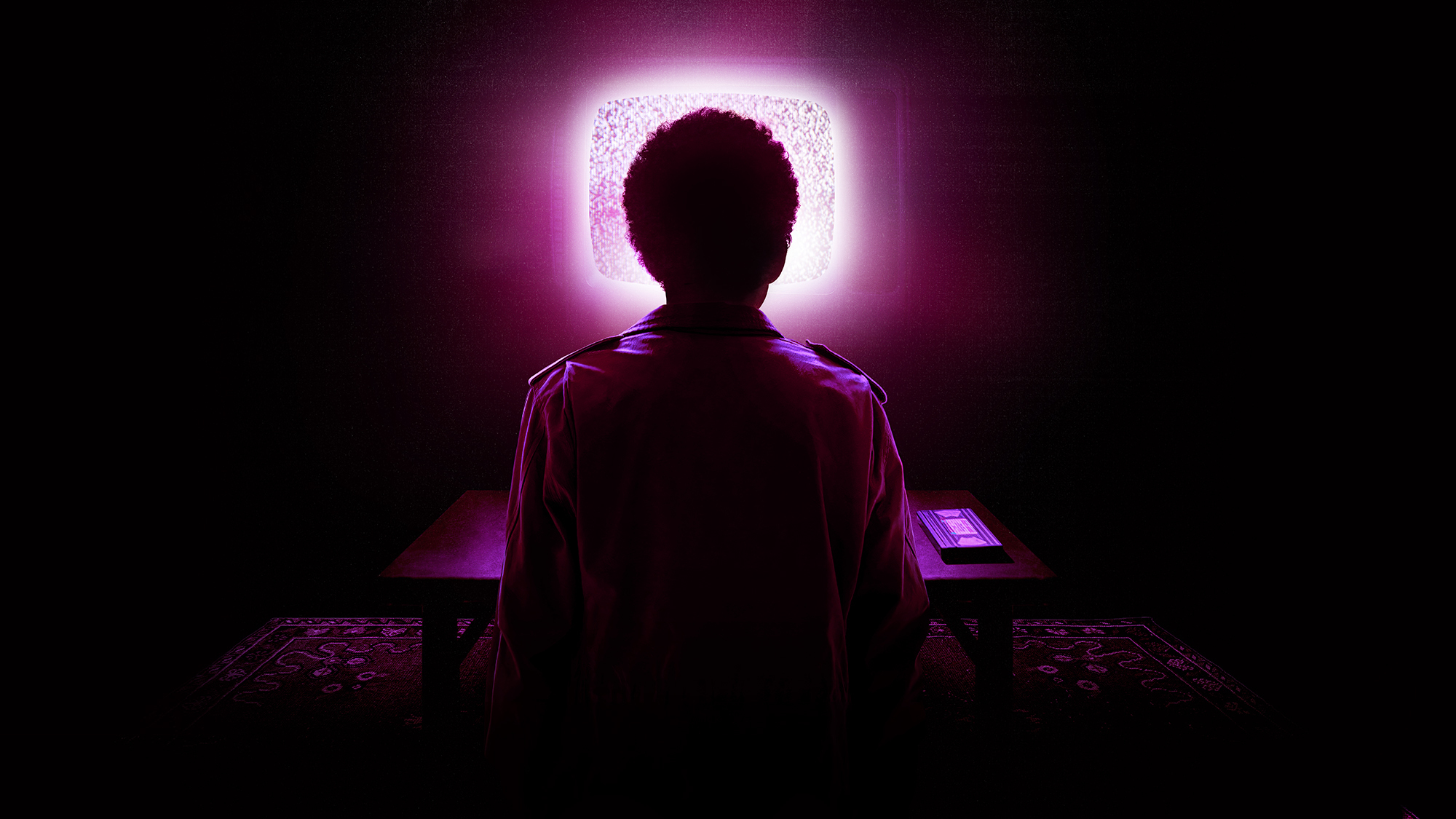
Television can provide an escape from the horrors of reality and provide comfort when you feel most alone and vulnerable. That sensation appears to be at the heart of I Saw The TV Glow. It’s a film that embraces the awe of being whisked from the suburbs and into a fantasy where there’s more freedom. Although the film wants to highlight that comfort and connection we form with media and how it relates to transgender individuals struggling to be themselves, this narrative spends more time gazing at its thesis than going further into its swirling of nostalgia and anxiety.
The atmosphere is almost eerily accurate with how director Jane Schoenbrun defines the 1990s, more through staging than references. It starts with dated effects and acting of the film’s young-adult TV show, The Pink Opaque, a spooky program akin to Are You Afraid of the Dark on a Nickelodeon-esque channel. Curious about this show is Owen (Justice Smith), a quiet and shy kid with internal problems that are swept under the rug. He admires The Pink Opaque from afar, but becomes more invested when forming a bond with the older student, Maddy (Brigette Lundy-Paine). They watch the show together through secret sleepovers and VHS recordings they slip each other at school, trying to keep the problems at home behind closed doors.
There’s a lot of relatable feelings evoked within the film as it jumps ahead in time and highlights the decaying moods of childhood. The awkward moment where Owen first connects with Maddy over a Pink Opaque episode guide book feels like a common conversation starter I’d have in the 1990s, even without the signifier of doing so right next to a Fruitopia machine. That quiet fear of watching something you’d be ridiculed for in secret can be felt as Owen hides tapes amid his father’s (Fred Durst) casual questioning of, “Isn’t that a show for girls?” There’s also that sinking feeling of doubting what you might have missed out on with a past friendship and that the past is not as compelling as you might recall.
Adding to the surreality of the narrative is a clear inspiration from David Lynch. This aspect can be seen in how the conversations linger for long stretches, the eerie staging of the suburbs, the moody musical detours, and the cracking of the boundary between media and reality. But while Lynch managed to makes his pauses pregnant and his pacing foreboding, this film always feels like it’s heading towards the same place. The film nearly transforms into a Lynch tribute with the bar scene, as Maddy slowly reveals the show’s connection to Owen with such slowness that there’s time for an angry-rock intermission.
Another overtly Lynch moment is the weird cameo by Michael Maronna and Danny Tamberelli of The Adventures of Pete & Pete (which is also referenced in the staging of The Pink Opaque). It reminded me of the finale to Twin Peaks: The Return, where Cooper returns to Laura Palmer’s house, only to discover the real-life owner of that real house occupies it. Here, the reveal of Pete & Pete is presented more like an overt messaging about how hard this should hit you. In theory, this is something that should hit hard for a millennial like myself who grew up infatuated with the two Petes, but it lacks something in the simplistic framing that seems to yell towards my demographic, “This is YOUR life we’re talking about here!”
I hate to be so dismissive as to say that the film’s theme is too on the nose, because that’s not a very compelling criticism. There are plenty of films I adore that wield their themes with all the subtlety of a jackhammer. But it feels like there should be something more besides Owen’s uncomfortable journey of discovering he’s trans through the lens of nostalgic horror. Nearly every scene highlights this point and keeps extending itself, often getting lost within its own messiness by having Owen break the fourth wall with his narration and Maddy pointing the narration out later. The perspective and progression keeps shifting back and forth wildly like an out of control car while the core theme remains locked on a track too rigid.
There are some good ideas in I Saw The TV Glow, but they’re mostly lost in a sea of static haze for a bygone era. Most of us all grew up watching Nickelodeon, forming some connection to its programming in one way or another and we all have some bittersweet nostalgia for the era. That’s a decent bridge to build between CIS and trans millennials, but also a rather simple one requiring further exploration. We can all get lost within the magical glow television, but, as Owen later learns in the film, it’s not as deep as we might first recall. It’s up to us to find out more about ourselves and use media as a springboard for those discoveries rather than a home where they remain locked within. This film elongates that point, as there’s a meta level of frustration in how Owen fears it’s too late to understand inner truth, a mood that is equal parts relatable for feeling honest and aggravating for being drawn out. We’ll always have that 90s nostalgia, but that might not be enough to live and certainly not enough for this film to float on.

 “My Spy: The Eternal City” Review
“My Spy: The Eternal City” Review  “Deadpool & Wolverine” Review
“Deadpool & Wolverine” Review  “The Boys: Season Four” Review
“The Boys: Season Four” Review  “The American Society of Magical Negroes” Review
“The American Society of Magical Negroes” Review  “Twisters” Review
“Twisters” Review  “Sausage Party: Foodtopia” Review
“Sausage Party: Foodtopia” Review  “Robot Dreams” Review
“Robot Dreams” Review  “Godzilla x Kong: The New Empire” Review
“Godzilla x Kong: The New Empire” Review 



